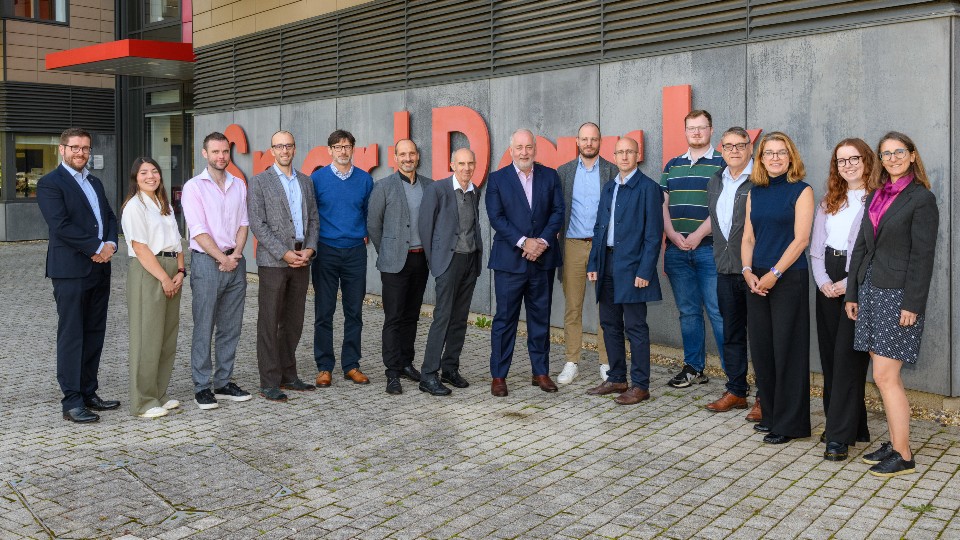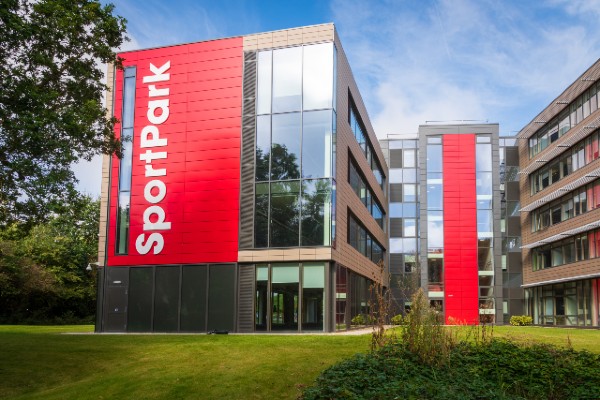DESNZ officials, including Nico Perin, Head of Commercial Buildings Decarbonisation, and Andrew Cooke, Director of Industrial Decarbonisation and Emissions Trading, visited SportPark Pavilion 4 — one of only a few Passivhaus-certified office buildings in the UK— to learn about Loughborough's research leadership in Net Zero buildings.
SportPark Pavilion 4 is Loughborough’s first Passivhaus development, which is widely regarded as the most challenging energy efficiency and comfort standards in the world. With features including triple-glazed windows, an enhanced thermal efficient airtight building fabric, external solar shading and a highly efficient heat and ventilation system, it offers sports organisations a unique opportunity to secure environmentally future-proof accommodation tailored to their needs.
Designed by David Morley Architects and built by Henry Brothers Construction, the £9m expansion of SportPark, which originally opened in 2010, sets the benchmark for sustainable development of the University campus. Officially launched in October last year, the project recently received the International Green Apple Award for Sustainable Development, Building and Construction and Carbon Reduction.
During the visit, which took place on 17 September, key members of the design and construction team, including Andy Mytom, Partner at David Morley Architects, discussed the transition from 2009 best practices to Passivhaus standards and shared lessons learned from the process.
The delegation also visited the UK Anti-Doping (UKAD) offices, where they heard first hand experiences of working in a Passivhaus environment. UKAD, the anchor tenant of SportPark Pavilion 4, occupy the entire third floor.
Following discussions on building decarbonisation, officials also met with experts from the University’s Centre for Renewable Energy Systems Technology (CREST).
The visit concluded with a tour of CREST’s state-of-the-art facilities, which include over 1,200m² of laboratories dedicated to renewable energy research, including photovoltaic, wind, and energy storage technologies. The labs focus on characterising photovoltaic cells and modules, as well as the materials used in solar devices.
Martin Channell, Assistant Director for Capital Projects and Programme Management at Loughborough University said: “SportPark Pavilion 4 is the University’s first Passivhaus building, and is providing the catalyst for new methodologies of decarbonisation of new and existing building stock across our two campuses.
A number of people were involved in the delivery of this project, learning the intricacies of Passivhaus design and construction along the way. The visit by the Department for Energy Security and Net Zero is further testament to the project’s success and the hard work of the delivery team.”

